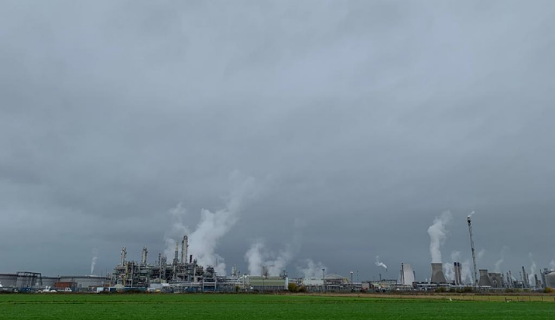Brussels, 08 December, 2021
In a bid to become a global leader on reducing methane emissions, the European Commission plans to table its proposal for a Methane Regulation this 14 December - but it's expected that it will not include full coverage of supply chains, nor inclusion of petrochemicals, as the European Parliament had asked for. With 75-90% of all EU methane emissions occurring from imported fossil fuels, these leading emitters and their supply chain need to be included if the regulation is to be robust, environmental NGOs urge.
Plastics, which are produced from petrochemicals such as crude oil and gas, remain one of the most greenhouse gas-intensive industrial processes, making them key drivers of climate change and pollution.
The Rethink Plastic alliance and Break Free From Plastic movement highlight that continued reliance on fossil fuels to produce plastic in Europe, including fracked gas produced in the United States, threatens to undermine emissions reductions objectives while exacerbating plastic pollution. The primary known users of such US fracked gas in Europe are global chemicals companies Borealis and INEOS, who seek to build the first new plastics plant in Europe in 20 years.
"A new facility that relies on fracked gas to produce the key building block of plastics is a direct contribution to global warming and inconsistent with Europe’s attempts to tackle the plastic pollution crisis,” said Delphine Lévi Alvarès, European Coordinator for the Break Free From Plastic movement and the Rethink Plastic alliance. “We remind the European Commission that living up to their climate and zero pollution commitments means it is critical that the Methane Regulation and relevant policy developments include coverage of the full supply chain emissions and petrochemicals."
"In the midst of a mounting climate emergency, the transatlantic trade in petrochemicals is not the kind of economic cooperation the world needs. It not only harms people and the environment on both sides of the Atlantic but also threatens to undermine emissions reductions objectives and exacerbate plastic pollution,” added Steven Feit, Senior Attorney at the Center for International Environmental Law (CIEL).
“European policymakers shouldn’t be allowed to keep harming communities and the environment to feed Europe’s plastic addiction. Climate leadership and responsibility also means to stop hiding behind the anonymity of imported feedstocks as a source to fuel its plastic industry while banning fracking within their own borders,” he added.
“The failure to extend the measures in the upcoming EU Methane Regulation to imports and petrochemicals means the EU Commission is walking away from its collective commitment in the Global Methane Pledge before the ink is even dry, signalling to the rest of the world that it is okay to pledge and pontificate on the podium and then dally and dither at home. We call on Executive Vice-President Timmermans and Commissioner Simson to recognise the EU’s role as a major driver of global methane emissions, and to propose meaningful measures on imports and petrochemicals ” said Tim Grabiel, Senior Attorney at the Environmental Investigation Agency.




